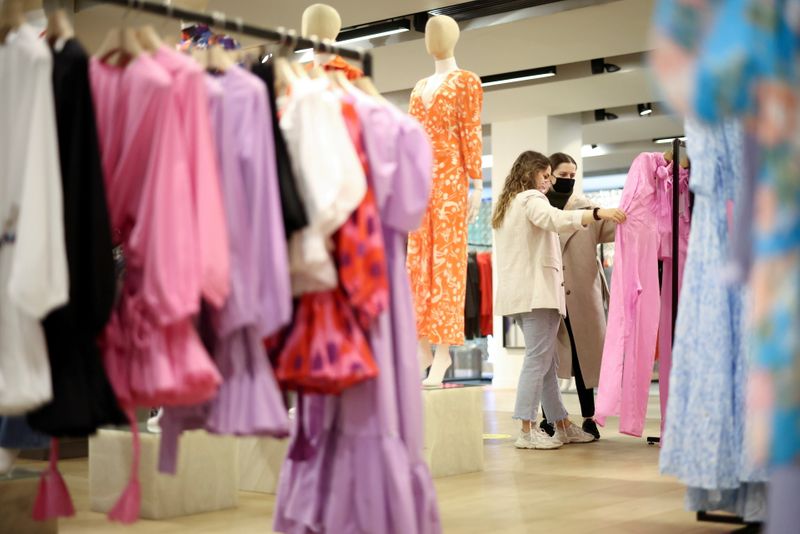By David Milliken and Andy Bruce
LONDON (Reuters) -British retail sales unexpectedly fell again last month in what is now a record streak of monthly declines, official data showed on Friday, adding to concerns about economic recovery although sales volumes remain well above pre-pandemic levels.
Sales have fallen steadily since a peak in April shortly after COVID-19 restrictions were lifted on shops.
Statisticians said some of August's 0.9% decline seemed to reflect a switch in spending away from supermarkets in favour of restaurants, where curbs ended more recently.
But shops also reported supply chain difficulties, and the decline adds to signs Britain's recovery is sputtering after a wave of cases of the coronavirus Delta variant in July.
"August's retail sales data bring more evidence that the recovery in consumers' spending has lost considerable momentum in Q3 and should cause markets to doubt whether the (Bank of England) MPC really will be in a position to hike Bank Rate as soon as February," Samuel Tombs of Pantheon Macroeconomics said.
While most economists do not expect the BoE to begin to tighten policy until late next year, financial markets put the odds of a first rate rise in February at nearly 60%.
But sterling barely weakened against the U.S. dollar after the data, which came in below all forecasts in a Reuters poll of economists.
Sales for previous months were revised lower too, leading to a fourth consecutive monthly decline, the longest since monthly records began in 1996, the Office for National Statistics said.
Sales volumes are still 4.6% higher than their level in February 2020, before they were first hit by the COVID-19 pandemic, but unchanged from their level in August 2020.
Many retailers have been struggling too to keep their shelves fully stocked due to supply chain bottlenecks, caused by a mix of global shortages following the pandemic and a lack of truck drivers in Britain.
Just under 7% of retailers said they had been unable to get all the stocks and other goods and services they needed in August - similar to businesses in the broader economy - with the figure rising to 18% of department stores, the ONS said.

Clothing and footwear sales were the only category of spending to rise in August.
Retail sales dropped 2.8% on the month in July, which stores attributed to poor weather and some shoppers preferring to follow England's success in the Euro 2020 soccer tournament early in the month, according to the ONS.